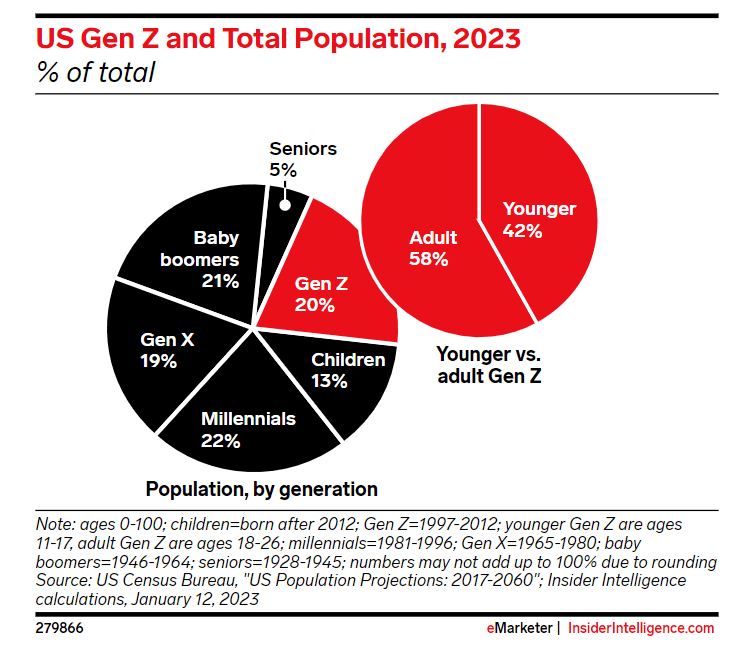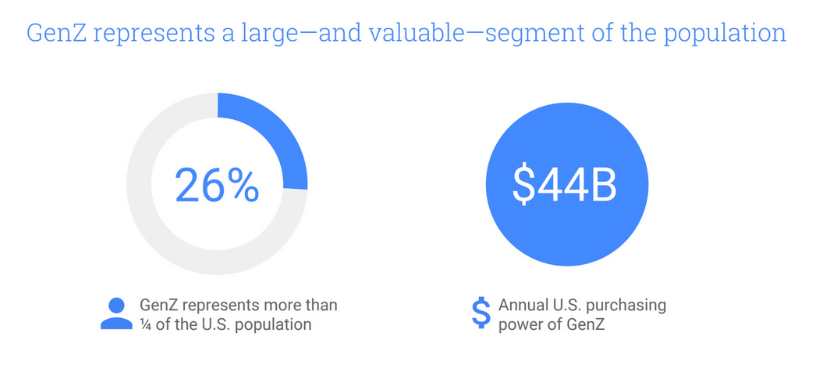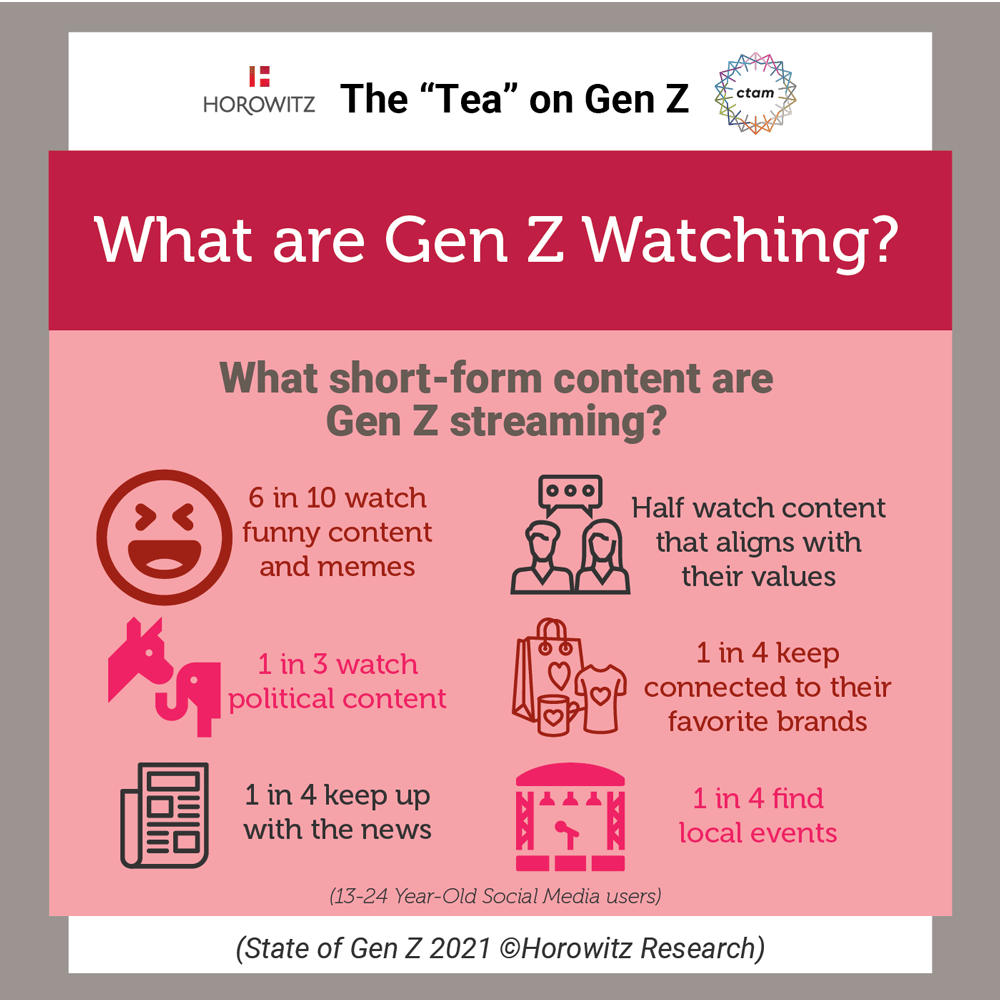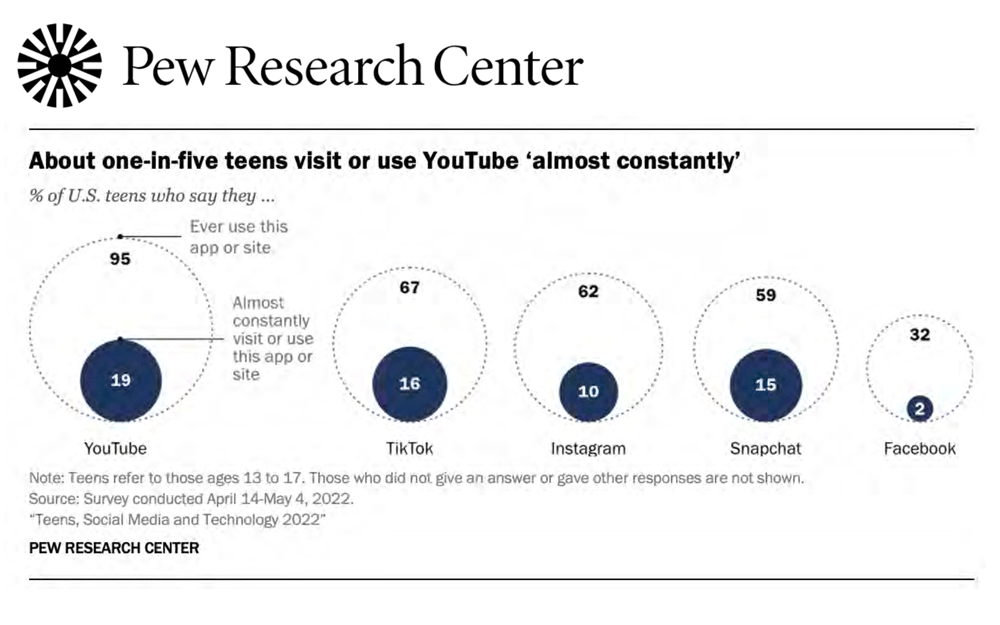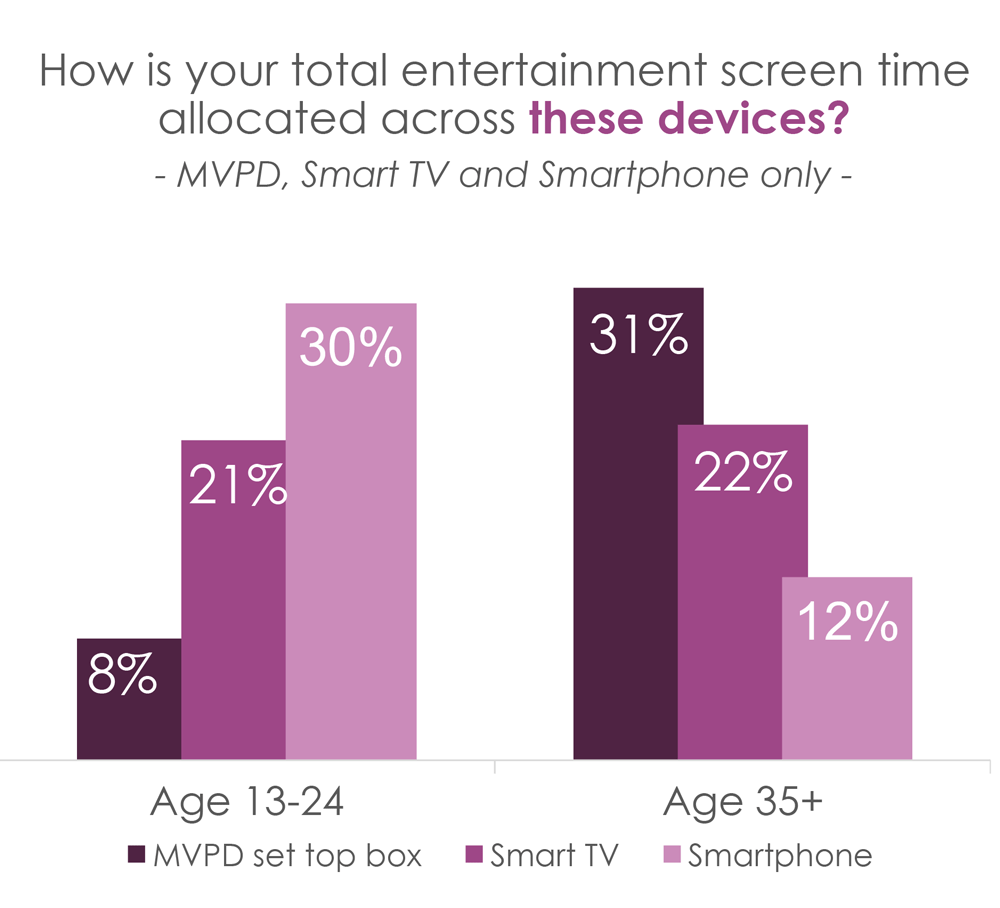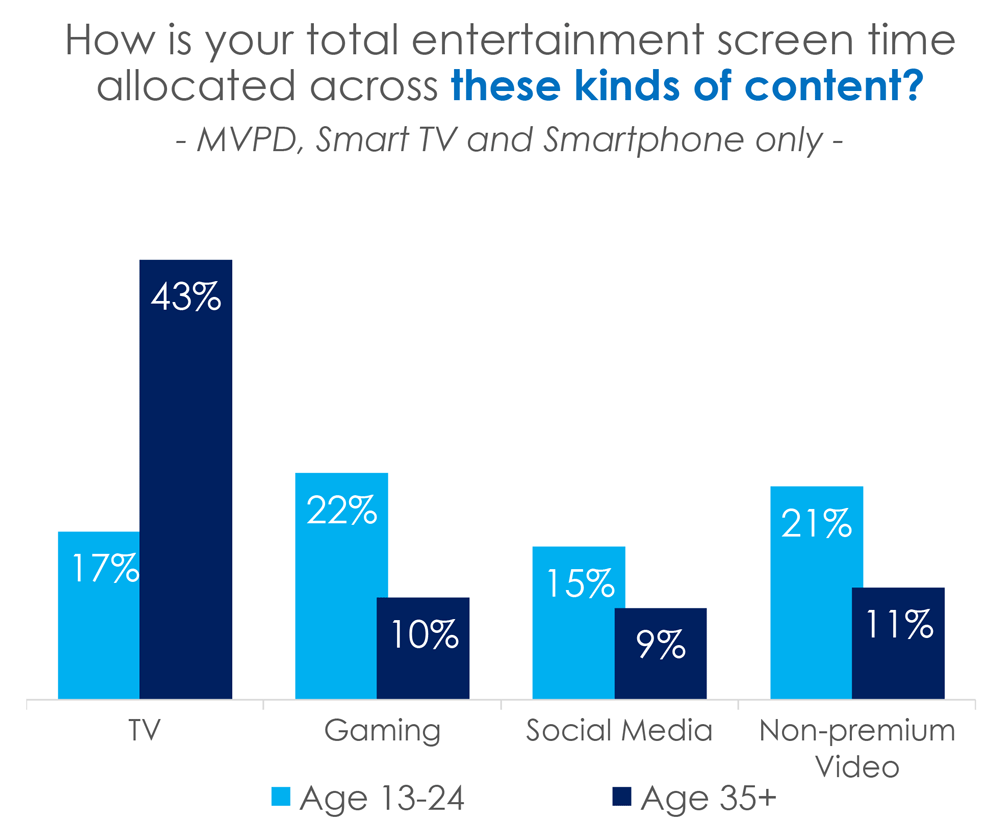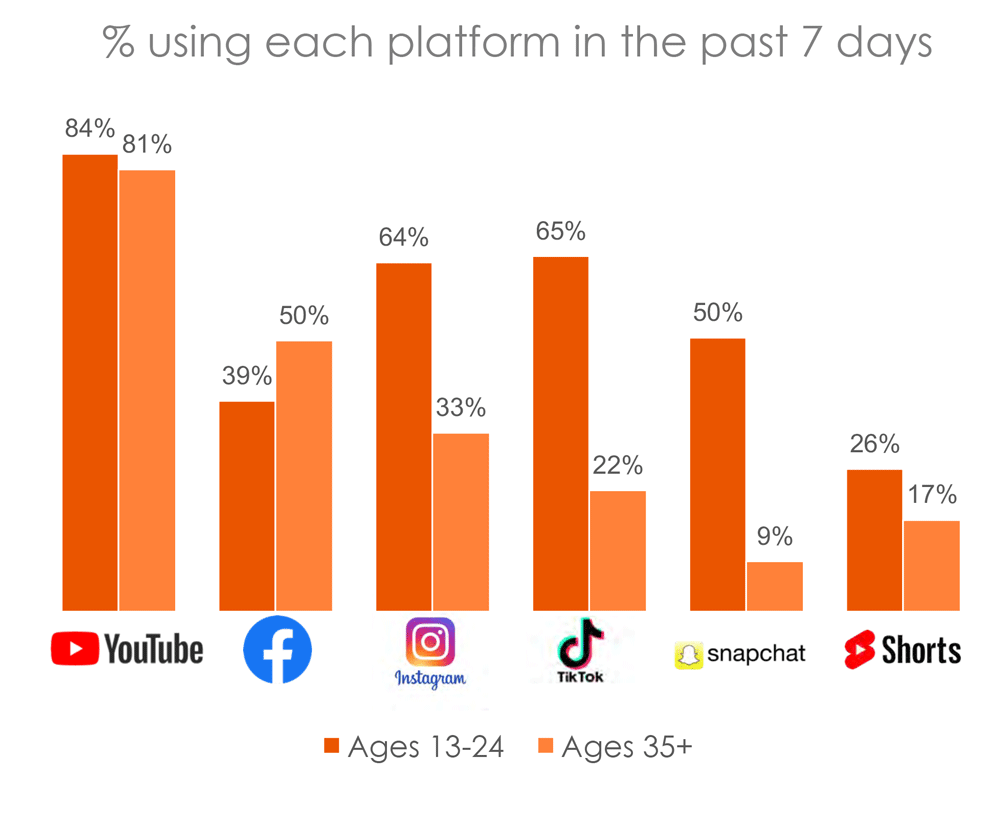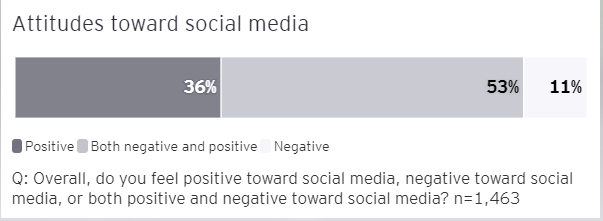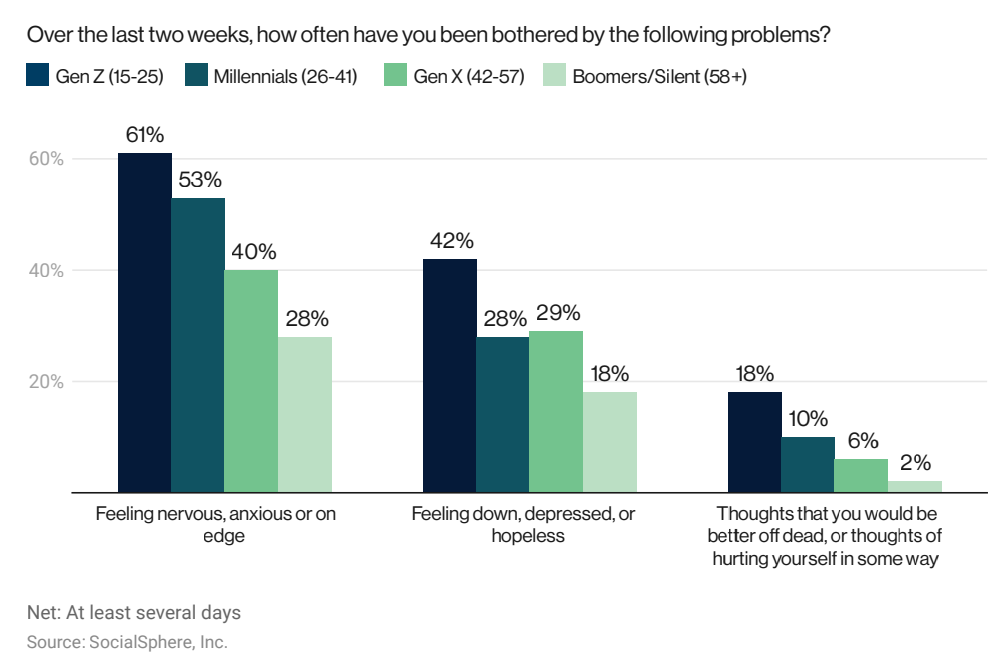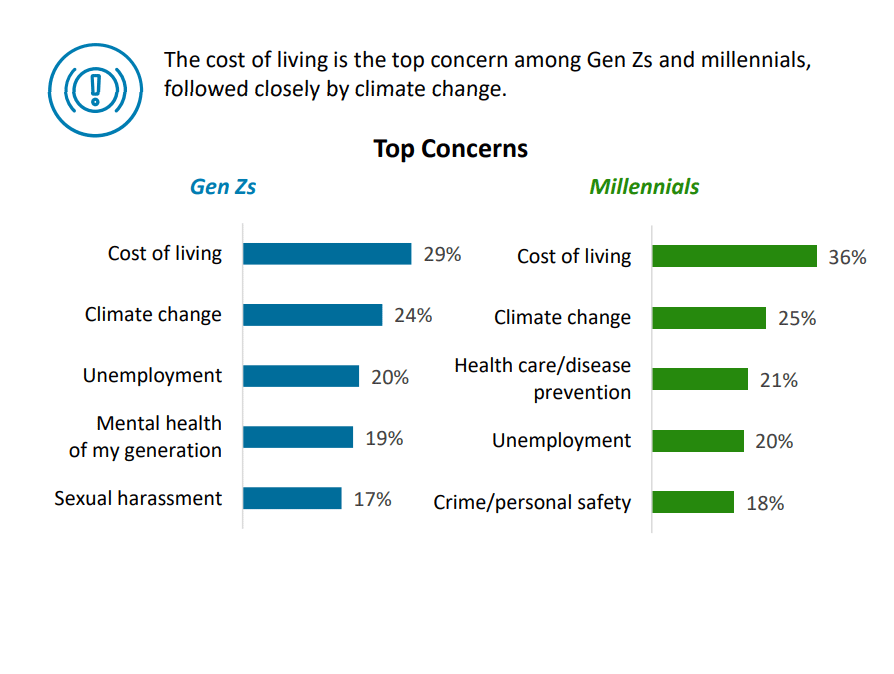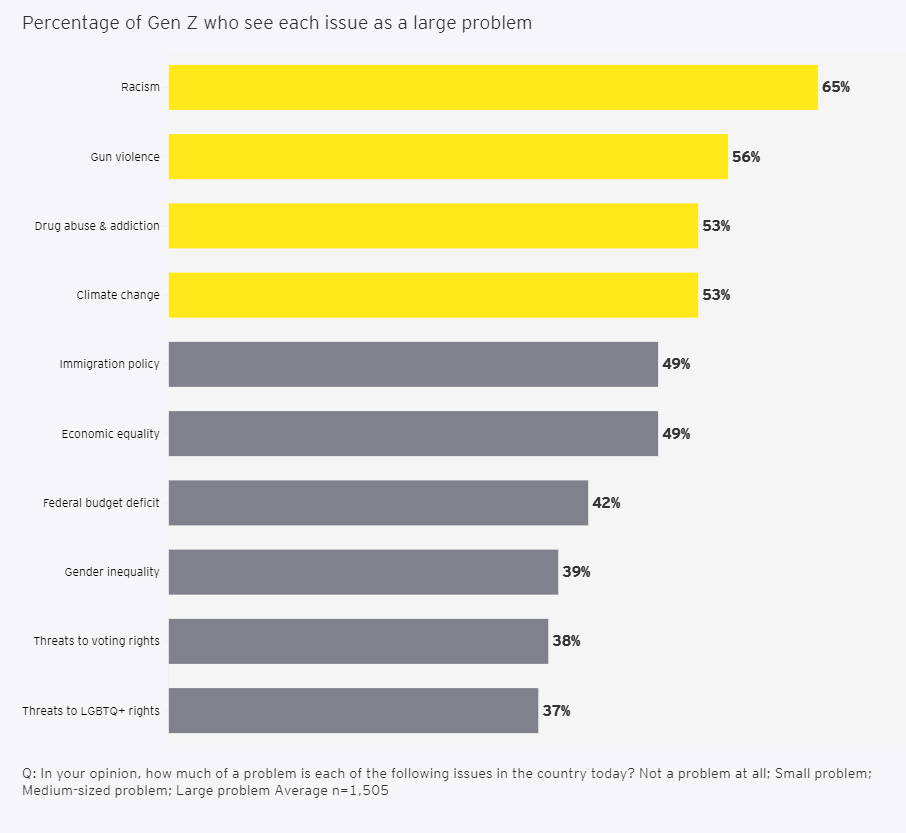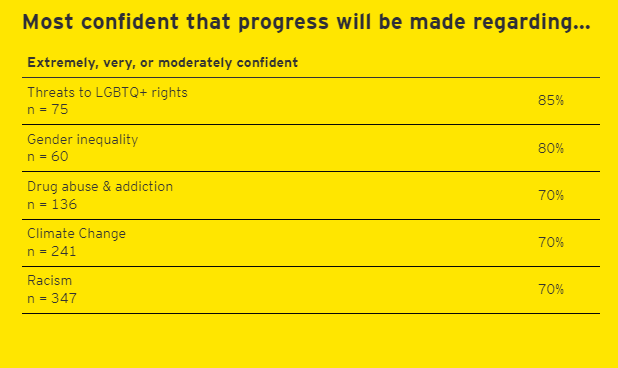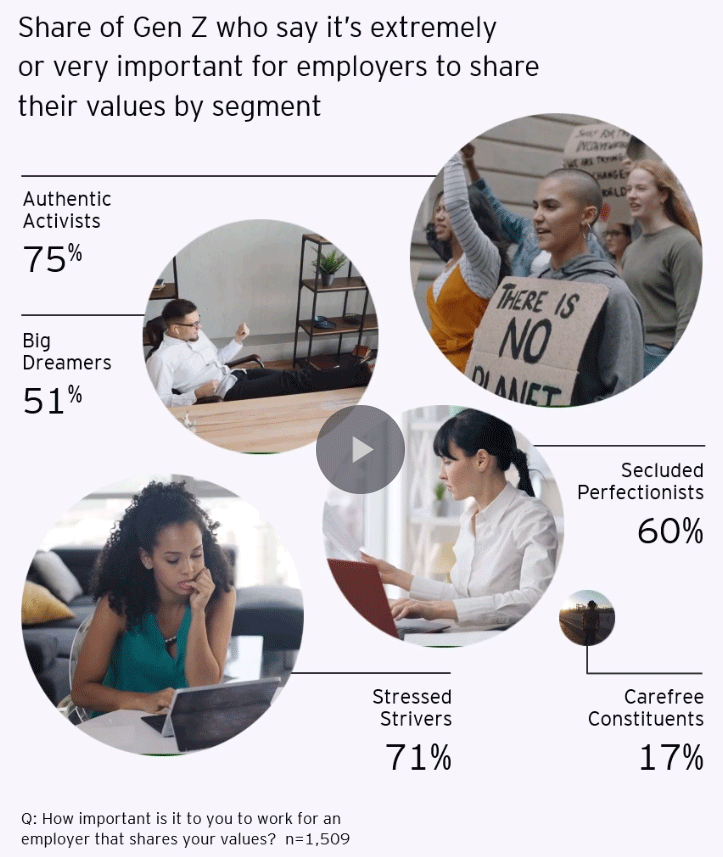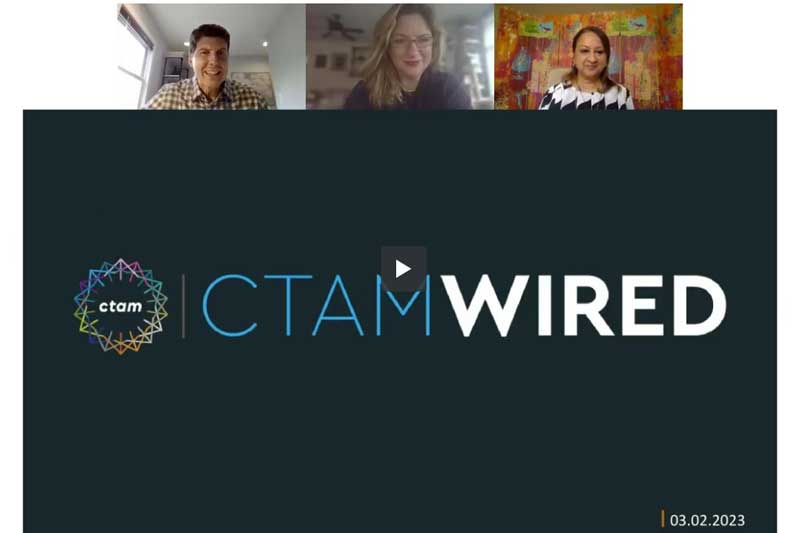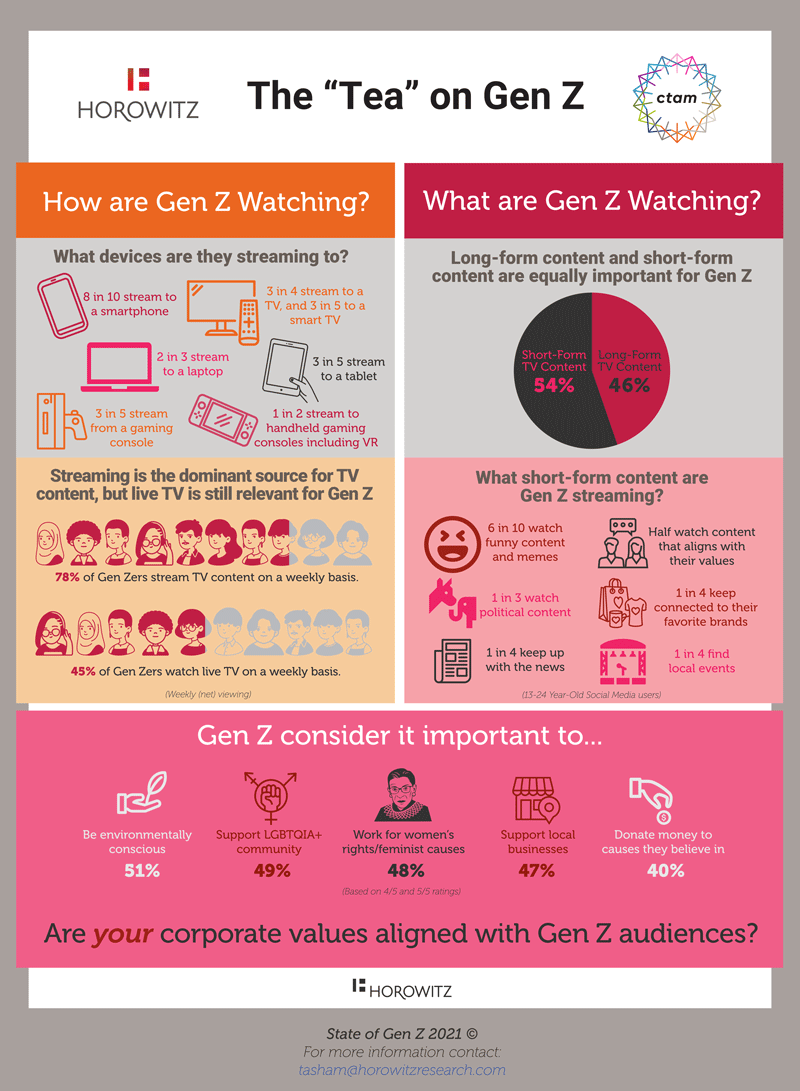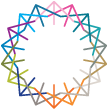
Successful Generation Z marketing strategies are adapting to this generation’s 8 second attention span and how they consume content, as well as their ideological differences. Explore how recent events are shaping Generation Z behaviors and attitudes around media, video content, brand relationships, lifestyles, beliefs and their future outlook.
Who is Generation Z?

Generation Z (aka Gen Z, iGen, centennials, post-Millennials, or homeland generation), refers to the generation that was born between 1997-2012. This generation has been raised on the internet and social media, with some of the oldest finishing college by 2020 and entering the workforce.
This generation has been raised on the Internet with multiple screens, social media, and streaming, not to mention experiencing a global pandemic during their formative years. Some of the oldest are entering the workforce, starting families and developing long-term goals to better shape their future.
- There are 68.6 million Gen Zs living in the United States making up 20% of the US population. (US Census, 2023)
- Gen Z will become majority non-white in the US by 2026 with 22% of American Gen Zs having at least one immigrant parent. (Pew Research, 2023)
- 57% of American Gen Z adults are enrolled in college and are set to become the most educated generation in history. (Pew Research, 2023)
- Gen Z is growing up with 38% of Gen Zs having entered the workforce. (GWI, 2023)
- However, Gen Zs are also delaying starting families with only 11% married or with children (Exploding Topics, 2023)
Gen Z Purchasing Power:
- Gen Z – which includes today’s teenagers and young 20-somethings – currently makes up 26% of the U.S. population and is expected to account for about 40% of all consumer markets. (Forbes)
- 40 million Gen Z are adults as of 2023, with 70.8% of 20- to 24-year-olds in the workforce creating an annual purchasing power of $44B. (US Bureau of Labor Statistics)
-
Gen Z to surpass Gen X in the number of digital buyers by 2025. (Insider Intelligence, 2023)
Gen Z Statistics
Media & Entertainment:
- Average Gen Z attention span = 8 seconds (Source: Sparks & Honey)
- Streaming: How Gen Zers (ages 13 – 24) watch long-form and short-form video content daily. (Horowitz)
80%
Report streaming video to a smartphone
75%
Report streaming video to a TV set
67%
Report streaming video to a laptop
60%
Report streaming video to a smart TV
60%
Report streaming video to a gaming console
60%
Report streaming video to a tablet
50%
Report streaming video to handheld gaming consoles including VR
- While Netflix is the most popular streaming service—with over three-quarters (78%) of Gen Z streamers using it regularly—other SVOD services, including Disney+, Hulu, Amazon Prime Video and HBO Max, are also heavily used, as are free services like YouTube (for TV content) and The Roku Channel. (Horowitz Gen Z Study)
- Long-form content (46%) and short-form content (54%) are equally important for Gen Z. (Horowitz Gen Z Study)
- Gen Z are most likely to stream short form content that are funny content and memes (60%), content that aligns with their values (50%), and political content (33%). (Horowitz Gen Z Study)
- Viewing Behaviors: Gen Z audiences prefer more engaging TV set experiences. (Horowitz)
![]() 66% occasionally text or direct message on social media about shows they are watching.
66% occasionally text or direct message on social media about shows they are watching.
![]() 60% report watching TV shows simultaneously with peers in different households, virtually discussing the show through messaging, social media, or co-viewing online experiences.
60% report watching TV shows simultaneously with peers in different households, virtually discussing the show through messaging, social media, or co-viewing online experiences.
![]() 56% are interested in co-viewing experiences like Netflix Party and Hulu Watch Party.
56% are interested in co-viewing experiences like Netflix Party and Hulu Watch Party.
- About one-in-five U.S. teens visit or use YouTube ‘almost constantly’ (Pew Research Center, 2022).
- For many young viewers, smartphones are the starting point for entertainment with almost a third (30%) of viewers ages 13-24 allocating almost one-third of their entertainment time to content on phones. (Hub Entertainment Research, Video Redefined Study – Dec. 2022)
- Young viewers spend far more time than older ones on gaming, online video and social media – and less than half as much on traditional TV. (Hub Entertainment Research, Video Redefined Study – Dec. 2022)
Social Media:
- Instead of using social media for projecting, a majority of Gen Z use it to communicate with two-thirds saying that their relationships with friends have actually become stronger or haven’t changed over the COVID-19 pandemic. (EY, 2023)
- 74% of Gen Z use social media apps to communicate more often with their friends (EY, 2023)
- Gen Zs prefer Instagram over TikTok for most social activities with 76% of Gen Zs using Instagram to post or share content compared to just 45% who use TikTok to do the same (GWI, 2023)
- However, TikTok is used more so for entertainment with 81% of Gen Z using it to find funny or entertaining content compared to 67% for Instagram. (GWI, 2023)
- 64% of Gen Zs use Instagram at least once per day and is the top social media platform for Gen Zs globally. (GWI, 2023)
Top Gen Z Social Media Platforms
using daily
using daily
using daily
- Two-thirds (65%) of young consumers use TikTok, second only to YouTube (84%). (Hub Entertainment Research, Video Redefined Study – Dec. 2022)
- Over one-third of social media influencers are Gen Zs commanding the highest fee for sponsored posts (Klear, 2023)
- Gen Z’s attitudes towards social media is mixed with only 36% having a positive feeling towards it. (EY, 2023)
- 42% of Gen Zs have taken a break from social media for at least 24 hours with 58% saying “less than a day” and 22% saying a week or longer. (EY, 2023)
Advertising:
- 1-in-3 (34%) of Gen Zs follow their favorite brands on social media, and are more likely to follow brands than influencers (30%). (GWI, 2023)
- When it comes to product research, 69% of Gen Zs turn to Instagram while just 46% use TikTok. (GWI, 2023)
- Sixty-seven percent of Gen Z and Millennial consumers recall seeing out of home advertising on social media, and 91% Gen Zers and 82% of Millennials say they would reshare OOH ads on social. (OOH Media Opportunities: Consumer Insights and Intent Report)
- A majority (82%) of both Gen Zers and Millennials say they are open to seeing some type of ad within VR or AR, and 72% of US adults in larger urban centers say the same. (OOH Media Opportunities: Consumer Insights and Intent Report)
Emotional State
GenZ is stressed and in crisis, but not giving up.
- 46% of Gen Z feel burned out due to the intensity/demands of their working environment. (Deloitte, 2022)
- 44% of Gen Zs say many people have recently left their organization due to workload pressure. (Deloitte, 2022)
- Gen Z is about twice as likely (42% vs. 23%) to battle depression and feelings of hopelessness and 3X as likely to say their challenges are so severe that they have had thoughts of self-harm or might be better off dead. (Mumuration, 2023)
GenZ’s Mental Battles: (Mumuration, 2023)
- More than half of Gen Z (52%) know someone battling depression.
- One-third (32%) have someone close to them who has been a victim of sexual assault.
- Nearly a quarter (24%) have someone close to them dealing with opioid or other drug addiction.
- One-fifth (20%) know someone who has died by suicide.
- And, 14% say they know someone who’s been a victim of gun violence.
Current Issues
- Gen Zs continue to be very concerned about wealth inequality (72% agree the gap is widening between rich/poor) and trust in business is declining (less than half (45%) agree business is having a positive impact on society). (Deloitte, 2022)
- The cost of living followed by climate change are top concerns for Gen Z. (Deloitte, 2022)
- GenZ has a positive outlook on the change they can make, with 43% feeling that life for future generations of Americans will be better than life today. (EY, 2023)
- GenZ persevere to secure a future for themselves and those that follow with confidence that progress will be made regarding LGBTQ+ rights, gender inequality, climate change and racism. (EY, 2023)
Individual / Professional Growth
- Over one-third of Gen Zs are already part of the work force with many beginning their careers during COVID and having only experienced a remote or hybrid work environment.
- 1 in 5 Gen Zs say being financially independent by age 30 is their #1 goal. (Mumuration, 2023)
- However, 30% of Gen Zs don’t feel financially secure. (Deloitte, 2022)
- 46% say they live paycheck-to-paycheck and are worried about their financial futures. (Deloitte, 2022)
- 26% don’t believe they’ll earn and save enough money for retirement leading to 43% of Gen Zs working a second job. (Deloitte, 2022)
- 40% of Gen Zs say they plan on leaving their job within the next two years and 35% stating they would leave even if they didn’t have a job lined up. (Deloitte, 2022)
- Work-life balance is the top factor Gen Zs use when choosing an employer. (Deloitte, 2022)
Top Reasons Gen Z Choose an Employer
- Gen Z says it’s extremely or very important for employers to share their values. (EY, 2023)
Marketing to Gen Z
From CTAM Wired Webcast: Passing the Gender Equality Vibe Check with Gen Z
ANA/Horowitz Research
- Don’t Label Gen Z
40% of Gen Z say labels should be chosen by the individual, not society - Roles are Not Gender Driven
Over 50% of Gen Z says both male and female identifying people can do anything from using makeup, to doing heavy manual labor, to being emotional, to having careers in STEM. - Disappearing Binary, Emerging Fluidity
50% of Gen Z says gender is non-binary. 64% say sexuality is fluid. - Allyship: “You Be You & Let Me Be Me”
88% of Gen Z disagrees that increased acceptance of non-traditional ways of thinking about gender and sexuality is bad for society. - Brand Authenticity
46% of Gen Z say to trust a brand, it’s not enough for them to claim support . . .but show it in action. And 47% say it feels like pandering when a brand makes ads focused on a cause that they’re not involved in.
Gen Z Resources
CTAM Wired – Passing the Gender Equality Vibe Check with Gen Z: From Truth to Trust
Discover the truth about Gen Z views on identity, gender and gender roles, and sexuality to better direct how marketers and media companies can strategically craft on-point connections by building trust through accurate marketing representation.
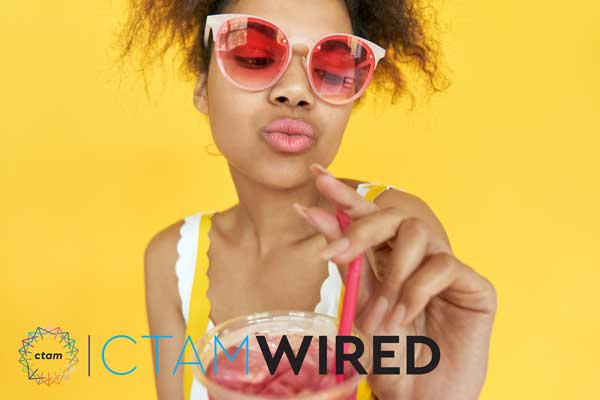
State of Gen Z Study
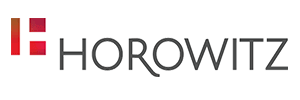
This study provides a comprehensive look at Gen Z’s relationship and behaviors around video content (long form, user generated, eSports, etc.), entertainment, relationship with brands, and what brands needs to consider when looking to engage these politically aware digital natives.
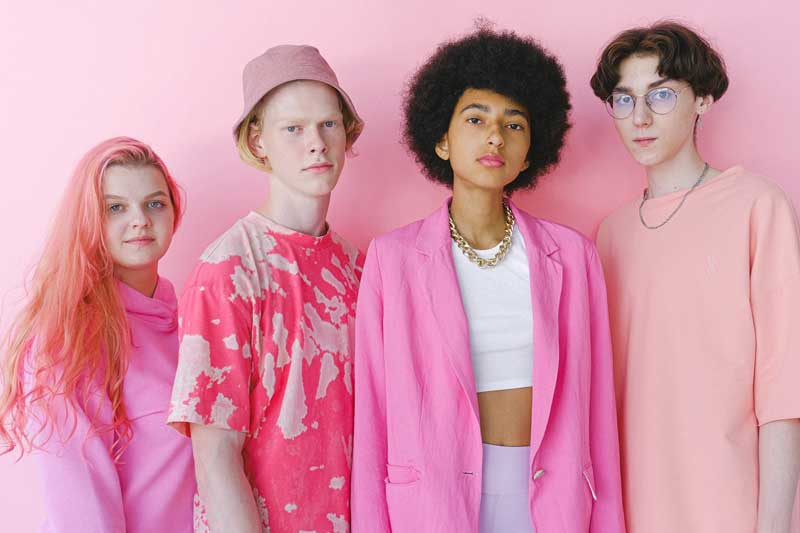
Looking Forward with Gen Z: A Gen Z Research Report
Mumuration, in partnership with Walton Family Foundation
Gen Z is now 70 million strong, and is considered to be the most ethnically and racially diverse generation in American history. Discover how this unique generation of coming of age in a time of tremendous national chaos and trauma and the impact they will have on politics, school and work, technology, culture and family and community.

Striving for Balance, Advocating for Change
The Deloitte Global 2022 Gen Z & Millennial Survey, April 2022
As economic conditions and quality of life continues to drastically change in many parts of the world, this study connects with Gen Z around the globe to gauge their views on work and the world around them. Discover how Gen Z is responding to these global disruptions and how it impacts their future outlook on their personal life, work aspirations and the legacy of change they hope to make moving forward.


